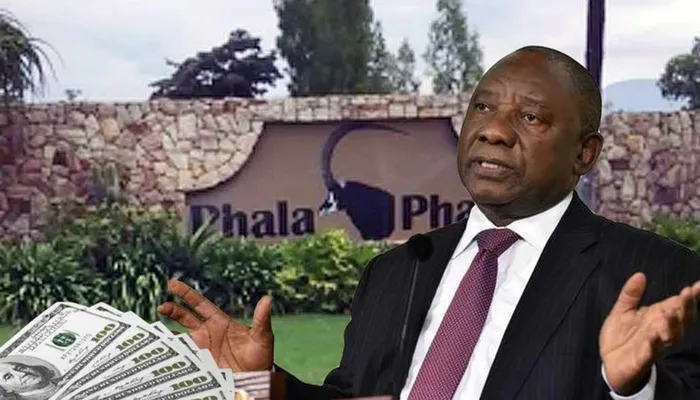ActionSA threatens legal action against IPID over delayed Phala Phala report

President Cyril Ramaphosa's Phala Phala farm in Limpopo was the site of a widely publicised 2020 burglary where over US$580,000 in cash was allegedly stolen.
Image: IOL
IF the Independent Police Investigative Directorate (Ipid) fails to deliver its report related to the Phala Phala investigation by the new deadline of June 30, ActionSA will pursue legal action, the party warned.
The party had applied for access to the report under the Promotion of Access to Information Act (PAIA) but Ipid requested a 30-day extension, citing issues with their email system.
The investigation centres on an alleged cover-up of a 2020 theft involving large sums of US dollars hidden under couches on President Cyril Ramaphosa’s Phala Phala farm in Limpopo. Despite no official police case being opened, state resources were reportedly used to trace the suspects, some of whom were located in Cape Town and were allegedly assaulted to reveal the whereabouts of the remaining money, much of which had already been spent on luxury vehicles, jewellery, and property in Namibia.
In 2022, the African Transformation Movement (ATM) asked Ipid to investigate an alleged police cover-up. But when ATM leader Vuyo Zungula raised the issue through a Parliamentary question, Police Minister Senzo Mchunu said the report was “top secret” and would not be shared with the public.
ActionSA contends that the classification of the report as ‘top secret’ was unlawful. This follows the Public Protector’s finding that members of the Presidential Protection Unit had acted outside of their legal mandate and abused their powers in relation to investigations into the theft at Phala Phala.
In April, ActionSA submitted a PAIA application to unseal the Ipid report.
“In late May, after weeks of radio silence, ActionSA received a formal response from Ipid indicating that they would extend the deadline for releasing the report. The reason given for this delay was that Ipid’s email system was down. In submitting this response, Ipid has affirmed ActionSA’s belief that it does not want the South African public to see the contents of this report,” said ActionSA national chairperson, Michael Beaumont.
In light of their suspicions, the party said they had also submitted parliamentary questions to the Minister of Police to determine whether Ipid’s system had indeed been down.
“Our concern is that crimes such as those committed at Phala Phala must be investigated by detectives, not by those tasked with protecting the President. ActionSA will not let this matter rest and if the Ipid report is not received by the new deadline of 30 June 2025, legal action will follow,” Beaumont added.
Ipid confirmed that it requested an extension, citing technical challenges.
“Yes, Ipid did request an extension regarding the request for the Phala Phala Report because, at the time, the department experienced technical challenges. In terms of Section 26 (1)of PAIA, the Information Officer, to whom the request for access has been made or transferred, may extend the period of 30 days referred in section 25(1), once for a period not more than 30 days. IPID's information Officer will, therefore, respond to the requester, since we are within the 30-day extension period,” Ipid spokesperson, Lizzy Suping said.
Zungal said the longer this report is withheld, “the clearer it becomes that IPID is either being manipulated, or has chosen to become a political accessory rather than an independent institution serving the people of South Africa”.
He said: “ATM will continue to demand the full, unredacted release of this report. If necessary, we will pursue legal avenues to compel its disclosure. The ATM views the delay by IPID in releasing the Phala Phala investigative report as yet another blatant attempt to shield President Cyril Ramaphosa from accountability. To claim that an internal IT issue prevented them from responding to a legally binding PAIA request is unacceptable and completely inconsistent with how professional institutions are expected to function, particularly when handling a matter of such national and constitutional importance."
Cape Times
Related Topics: